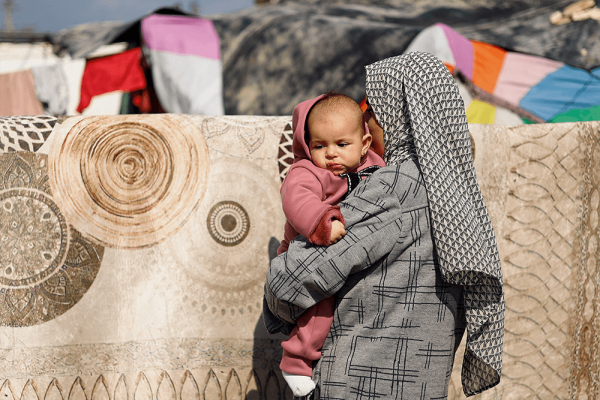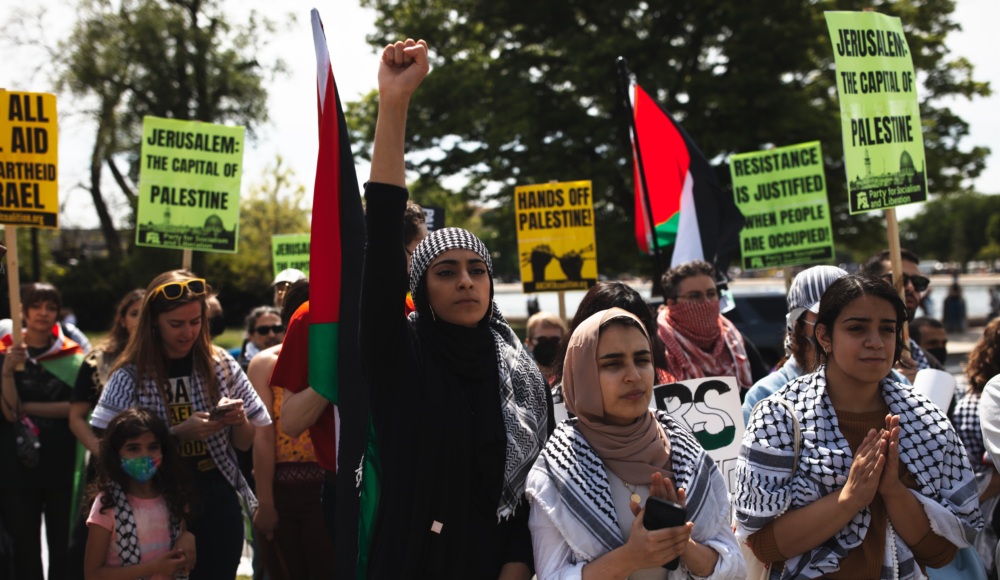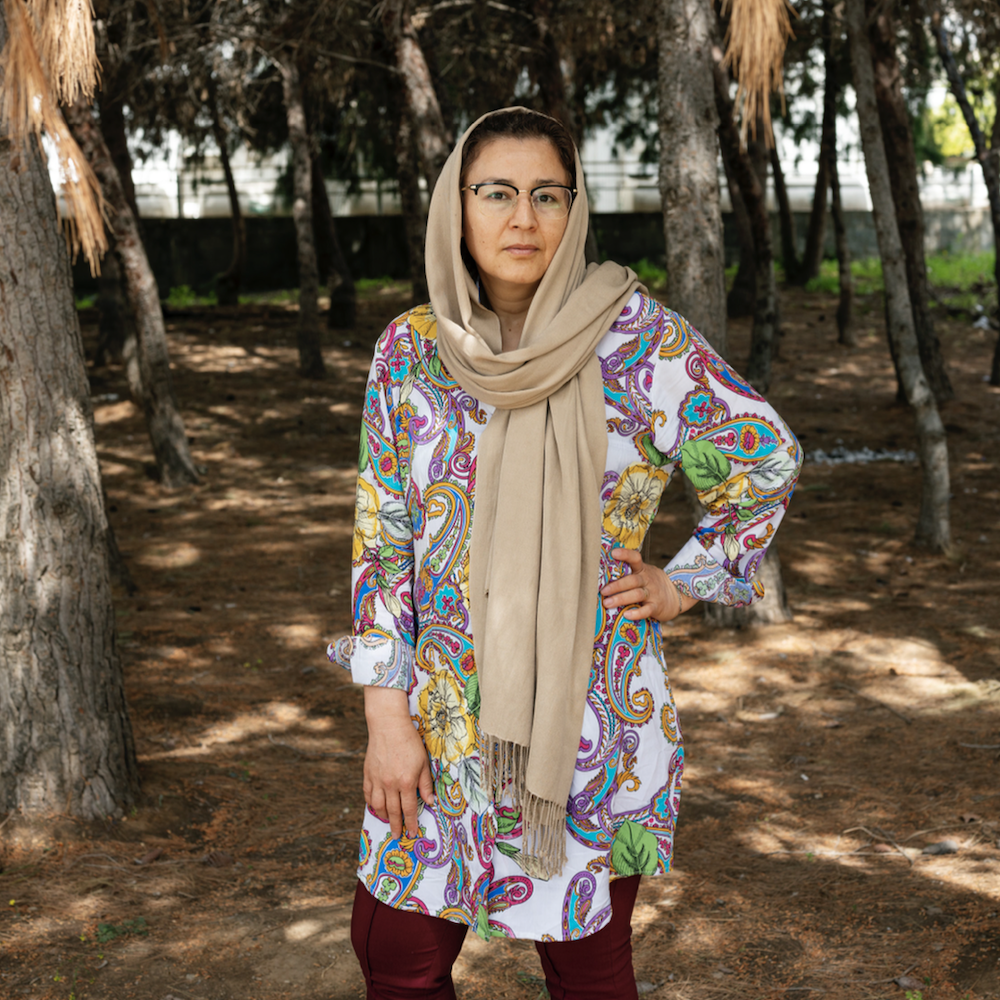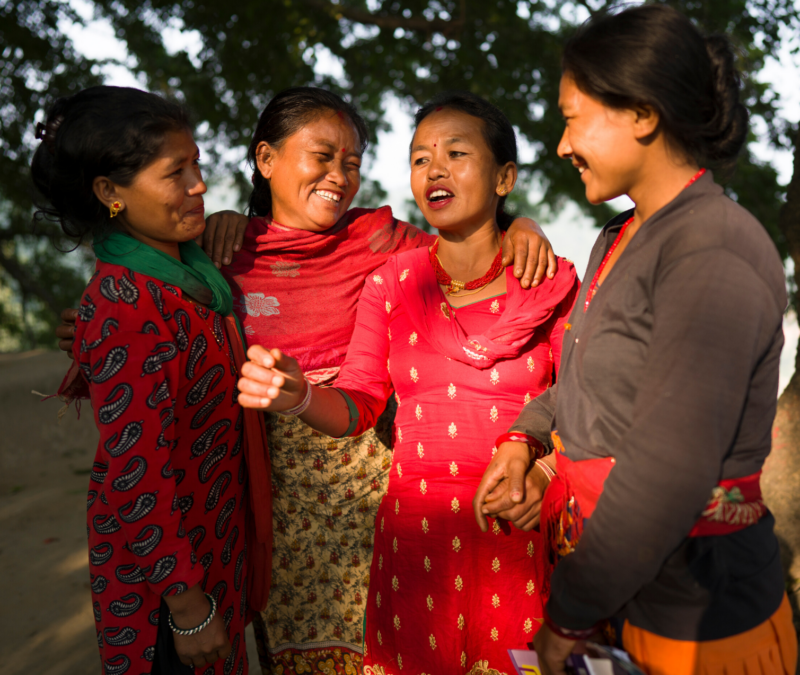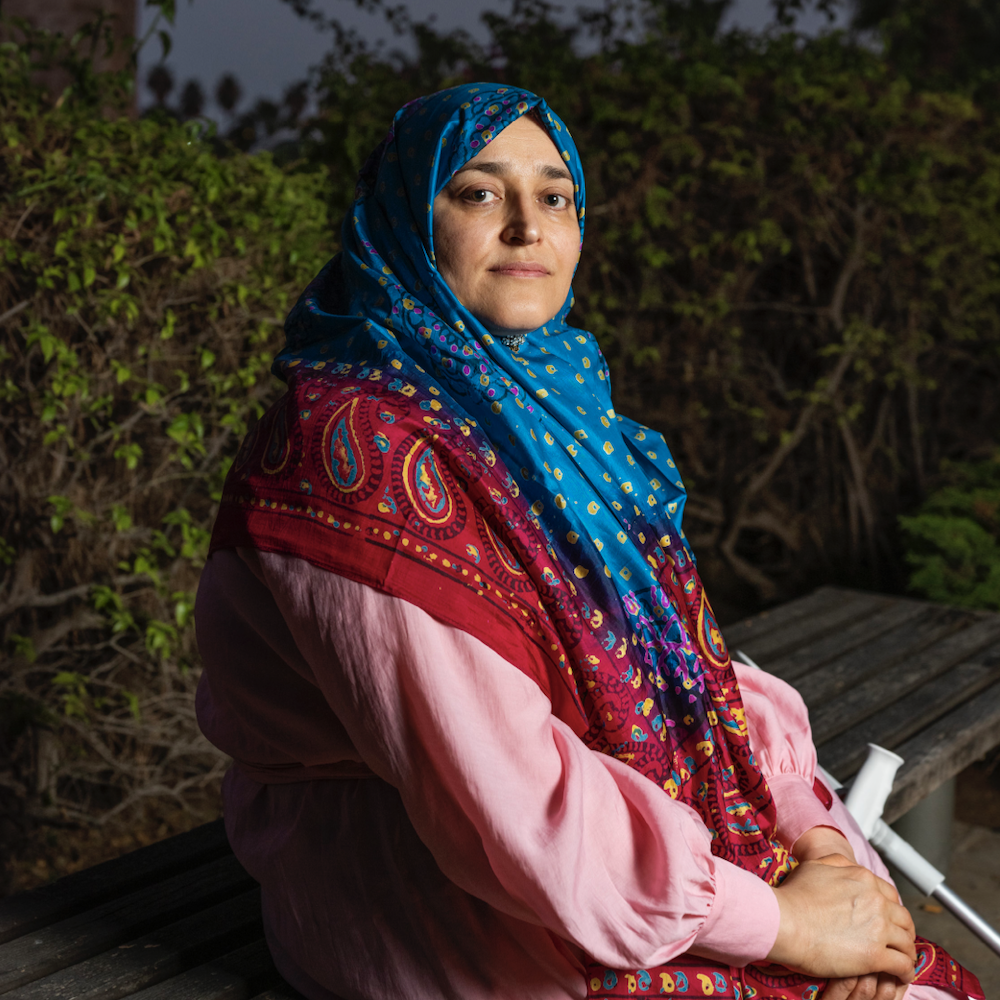
Continuing to deny aid to Afghanistan is an anti-feminist policy choice.
By Jamila Afghani, MADRE partner, and Yifat Susskind, Executive Director
published by Foreign Policy
January 31, 2022
By Jamila Afghani, MADRE partner, and Yifat Susskind, Executive Director
published by Foreign Policy
When the Taliban took power in Afghanistan last August, the United States and others in the international community immediately locked up billions of dollars in financial assets and aid that had been earmarked for the deposed Afghan government. To continue to provide the country with funding, many U.S. policymakers reasoned, would signal complicity with an illegitimate regime and the Taliban’s long track record of human rights violations against its own people, particularly against women and girls.
Six months later, Afghanistan is mired in an economic and humanitarian catastrophe. Aid groups have warned that as many as 1 million children could starve to death in the coming months, and 60 percent of Afghanistan’s population suffers from acute hunger. Some have suggested that this urgency forces wealthy nations holding Afghan assets to grapple with an unfortunate but strategically necessary choice: offer economic relief to Afghanistan, normalizing the Taliban in the process, or withhold aid to create economic leverage that could eventually compel the Taliban to respect women’s rights.
This is a false choice. Economic relief must go hand in hand with women’s rights advocacy. Otherwise, countries risk limiting the impact of any potential economic relief and humanitarian aid on Afghanistan and worsening the humanitarian crisis for millions of Afghans—particularly women, who often carry the responsibility for meeting their families’ needs for food, health care, and other essentials.
When U.S. policymakers and Beltway organizations frame the present impasse as a zero-sum dilemma, the harm goes both ways. Women are thrown under the bus, vilified as a cause of the humanitarian catastrophe. In reality, the best way for policymakers to ensure their actions promote an effective economic recovery is to center the voices of Afghan women leaders and heed their recommendations.
This false choice is grounded in historical hypocrisy. For over two decades, U.S. policymakers have used women’s rights to justify perpetuating the war on Afghanistan—despite spending almost 1,000 times more on military expenditures than on promoting women’s rights and enabling the exclusion of Afghan women from peace negotiations. Now, we see policymakers again uplifting the defense of women’s rights as a rationale for cutting off the country’s financial assets, perhaps hoping that argument will carry greater moral weight than the murkier claims of countering terrorism or reasserting U.S. leadership.
As one of us, Jamila Afghani, has previously said, “We are not supporting Afghan women by starving them.” What’s more, if we don’t consult with women during policymaking to resolve Afghanistan’s myriad crises, all recovery efforts will suffer.
Economic relief must go hand in hand with women’s rights advocacy.
As Afghanistan’s humanitarian crisis has deepened in recent months, Afghan women across the country have mobilized their networks to provide essential local aid to their communities. They have delivered food aid to displaced families, assisted families pushed into poverty by the economic collapse, and supported the urgent relocation of women human rights activists threatened by Taliban retaliation. These women, with their deep and broad connections, know best how to ensure that humanitarian supplies and cash assistance meet the needs of their communities.
Instead of treating Afghan women as rhetorical tools to be marshaled for or against some policy proposal, policymakers in donor countries like the United States should turn to them as vital advisors in navigating crucial questions such as how to ensure unfrozen funds and humanitarian aid reach the most vulnerable and marginalized, and what effective strategies might be used to build leverage in negotiations with the Taliban.
By now, this type of policy consultation with women leaders should be common sense, and indeed is even enshrined in U.S. law through such measures as the Women, Peace, and Security Act.
But too often, the U.S. policymaking apparatus reacts to crises by reaching for the most punitive option. It imposes economic sanctions on entire populations to extract concessions from geopolitical opponents while claiming to act in the name of human rights. It ignores the well-documented ways in which sanctions erode human rights, especially for vulnerable women and girls, by stripping away the resources countries need to maintain essential services—like those that provide health care and clean water—and increasing women’s caregiving burdens in the process. It also skips over the steps of local consultation and deprioritizes the inclusion of women’s voices in policymaking that has a direct impact on their lives.
Right now, the world needs to open multiple spigots to channel resources to Afghan people in danger. This means devising ways to unfreeze Afghan assets, launching mechanisms like United Nations-managed trust funds that could provide salaries and direct cash assistance to Afghans, ramping up humanitarian aid to Afghan civil society organizations, and supporting local people’s innovations around alternative financial avenues through remittances and cryptocurrency transfers. All of these priorities lie in arenas in which female Afghan grassroots activists and civil society leaders have essential expertise they can provide while keeping women’s rights considerations front and center.
Many Afghan women leaders have been forced to flee their country. Yet they maintain their connections with on-the-ground networks and other women leaders still operating inside Afghanistan. But instead of being sought out for their expertise by international policymakers, these Afghan women leaders have been too often shut out from discussions about their country’s future. A recent letter to ministers of foreign affairs and ambassadors of donor states written by dozens of Afghan women in exile shares how visa restrictions, temporary housing in host countries, lack of travel documents, and limited financial assistance to asylum-seekers have isolated them at a moment when their expertise is desperately needed to ensure effective delivery of humanitarian assistance to the Afghan people.
Furthermore, many Afghan women have worked as politicians, civil servants, and community leaders in Afghanistan, navigating questions of economic policy and law, and thus can advise on effective ways to move assets and manage trust funds. Afghan women have also pushed for inputs in the now-defunct peace negotiations in Doha, Qatar, many with direct experience dealing with the Taliban that dates back years. These women can guide U.S. and international policymakers on how to negotiate with the Taliban to leverage change.
Gaza is the Most Dangerous Place in the World to Give Birth
View DetailsMADRE Denounces Cuts in Aid to Palestine
View DetailsCalling for a Survivor-Centered Approach to Sexual Violence in Israel, Palestine and Beyond
View DetailsYOUR SUPPORT IN ACTION
MADRE created a manual for women and human rights defenders on documenting gender-based violence and rights violations so they can find justice and end the cycle of violence in their communities. We also produced a guide on leaving Afghanistan safely for those in the country facing life-threatening risks under the Taliban regime.
SUPPORT OUR WORKJoin a global movement of grassroots action
Connect with MADRE for news, events, and opportunities to build racial, gender, and climate justice with our grassroots partners all over the world.
